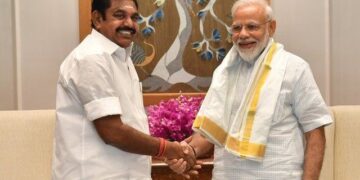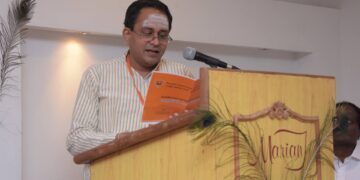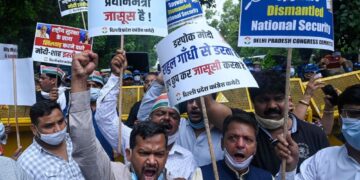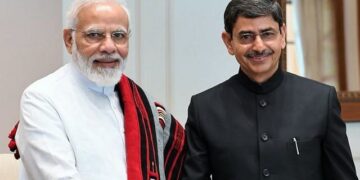 As we approach the third anniversary of the Sri Lankan genocide, a report is released, signed by 71 Tamil elite intellectuals titled as “An appeal to the Tamil Community and its civil and political representatives”, appealing to Tamil community for the resettlement of Muslim communities that were evicted by the LTTE during the war.
As we approach the third anniversary of the Sri Lankan genocide, a report is released, signed by 71 Tamil elite intellectuals titled as “An appeal to the Tamil Community and its civil and political representatives”, appealing to Tamil community for the resettlement of Muslim communities that were evicted by the LTTE during the war.
Everyone wants to see justice for all. But our imminent erudite scholars have missed the elephant in the room. How was it that they do not see in a similar vein the “international community” silently support of Sri Lankan genocide? How was it that these same bureaucrats wearing the garb of intellectuals silently attended to their daily decorum and peacefully watched the news of the genocide taking place? And, chose to remain silent at the aftermath.
People of the north and east are being expelled to cater to Rajapaksha regime’s chauvinist agenda. Political lackeys and multinational corporations are presented with these lands while affected poor are submitted to the mercy of NGO “intellectuals” and “international community” that works closely with the powers that be who present them with peanuts to put a brave face on and continue with their lives as nothing happened.
They are carefully acting on behalf of bureaucrats by diluting the angry innocents who have the potential to fight against the fascist government.
Let us look closely into who these people are, who appeal to all communities for ‘self-reflection’? Going by their words and actions, one gets the impression they hardly had time to apply the same principle of ‘self-reflection’ on themselves. For they have remained nothing but sternly silent spectators of the fundamental and the main contradictions plaguing our society that is between the rich minority and the poor majority and the ethnic contradiction between oppressing chauvinist government and oppressed ethnic minorities.
Inspire of that, true to their slave mentality and inferiority vis a vies western intellectuals, they have taken to the fashionable dabbling with ‘pluralist’ issues and standing up for ‘feminist’ or ‘Dalit’ issues that are being purposely highlighted by these elite groups to blunt the basic and main contradictions.
No one with an iota of social conscious will ignore the dire need for resettlement of Muslims in Northland at the same time emphasise the importance to struggle against the Rajapaksha regime which oppresses the poor and innocent and ethnic minorities while showering all the benefits to a chosen few.
What hides behind an appeal by these pseudo intellectuals is an imperialist agenda of a new world order that these same people promote when they are not making false appeals to Tamil people. Wherever there are oppression and poverty these NGOs “intellectuals” and “international community” are present to alleviate the pains and paucity. With huge funding from multinational corporations, these puppets of modern imperial playmakers operation societies all over the world and have become a curse in disguise.
First and foremost the report is asking to tolerate with the oppressing government and accusing the north and east Tamils for the non-settlement of Muslims who were evacuated 21 years ago by the LTTE.
As noted earlier, no one would disagree to resettle the displaced Muslims. However, disregarding the hundreds and thousands of dead Tamils and without any regard to their disappeared and displaced at the heart of the militarised north, brandishing these hollow appeals at helpless Tamil community and accusing them of an act they never had any says hypocrisy at its crass nadir.
Our duty is to support the Tamil speaking people who are fighting within their capacity to stop the ethnic cleansing, to fight against the Sri Lankan government which is denying the resettlement of the Muslims in the north and to elate the Sinhala oppressed people who are fighting against the Sri Lankan fascist government.
Comité de Défense Social (CDS)
inioru.com
Thedagam – Canada
Asai -France
The report signed by 71 Tamil elite intellectuals:
An appeal to the Tamil Community and its civil and political representatives.
Since the end of the war in May 2009, it has become important for all ethnic communities of Sri Lanka to re-examine and reevaluate their past. It is through this process of self-reflection that some of the major issues that confront state and civil society today can be meaningfully reconceived and reconfigured for the future.
While the war has drawn to a decisive close, the ethnic conflict is far from over and demands solutions short- and long-term. The quest for a viable political solution from a majoritarian state is a primary concern for the Tamil community today. Continued insecurity in the face of militarisation is an urgent matter. Armed militancy and a political culture of violence have further eroded into the democratic fabric of society. Resettlement and rehabilitation remain unresolved problems. Distribution of land, access to state and social networks, language parity, devolution of power, inter-ethnic reconciliation and the continued presence of gender, class and caste stratifications are a part of the political landscape today.
It is in this regard we raise the question of the eviction of the Northern Muslims 21 years ago. In October 1990, the LTTE evicted roughly 80,000 Muslims from the north in the wake of increasing hostilities and armed conflict in the north and east. The LTTE, which was militarily dominant in the north at that time and controlled large swathes of territory, ordered an entire community to leave the province in two days. In the Jaffna peninsula they were given just two hours’ notice. Subsequent to the eviction, several attempts were made by institutional mechanisms to facilitate the return of the communities to their original lands. During the Ceasefire Agreement (CFA), there were renewed attempts, particularly through the Secretariat for Immediate Humanitarian and Rehabilitation Needs (SIHRN), to negotiate the return of the Muslims with the Sri Lankan state and the LTTE.
In the current political landscape, the eviction of Muslims from the north and their return and resettlement pose a distinct political challenge to civil and political societies of the Tamil community. While from the time of the CFA, Muslims had been trickling back to their homelands in the north, the conditions for their return had not been congenial. Those who have returned have received hardly any state support for resettlement, and have been met with a certain level of bureaucratic hostility. The erasure of Muslim culture and institutions in the north in the last twenty years has made return less acceptable to the host community, and especially fraught for the returnees.
While recognising that the Tamil community has been under intense stress during and after the war, it is important to remember the plight of the forcibly evicted Muslim community in the north who were subjected to similar privations. The Tamil community’s sufferings and hardship cannot become reasons to sideline the issue of Muslim eviction. As much as we struggle for our survival in the face of external and internal pressures, it is paramount that we re-examine the politics of our own actions, assertions and silences.
The eviction represents one of the worst instances of the narrow, exclusivist thrust of the Tamil nationalist political campaign of the past thirty years. The failure of our civil and political leadership to understand and acknowledge this has prevented us from dealing with our own past, and with our own moral and political responsibility towards minority communities that live amidst us. An examination of how we have contributed to the polarisation of relations between our two communities has not been forthcoming even after the end of the thirty-year war. We must realise at least now that there is no exclusive political solution for the Tamil community, and that the question of political power sharing and equal rights confronts all minority communities. Inter-ethnic reconciliation and dialogue between communities, in particular the Muslim and Tamil communities, are essential processes to arrive at a sustainable political solution. The document The Quest for Redemption: the Story of the Northern Muslims, prepared by the Citizens’ Commission on the expulsion of Muslims by the LTTE recently made a most damning pronouncement about the silence of the Tamil community on the eviction. We need to break through this silence if we are to move toward a genuine process of reconciliation.
Today, as we are compelled to forge new paths of activism for our own survival, we need to formulate responses that are borne out of dialogue with different communities. This is essential if we are seeking a just and democratic political solution. As a step toward this, there has to be a public disavowal of the eviction. We shall wholeheartedly say that never again will such a heinous act as the eviction take place amidst us. Never again shall we condone such acts of ethnic cleansing. Importantly, it is necessary for us as a community, while revisiting this event and its continuing legacy, to set up an inter-ethnic mechanism to bring about dialogue and facilitate an easy return and resettlement process of the Muslims in the north.
Tamil society can no longer be isolationist and act on its own without paying heed to the concerns of other communities. We shall engage in questions of marginalisation, discrimination and injustice touching upon any community. And we shall unreservedly pledge our support to promote the pluralist character of society at all levels in our midst, and embrace a politics of inclusivity in the interests of democracy, justice and equality.
Signatories:
1. Mr. P. Ahilan
2. Dr. Darshan Ambalavanar
3. Ms. Jovita Arulanantham
4. Ms. Kundhavi Balachandran
5. Mr. Sivakolunthu Buvanakumar
6. Dr.GodwinConstantine
7. Dr.KumarDavid
8. Mr. R. Devarajan
9. Ms. Cayathri Divakalala
10. Dr. S. Ganesan
11. Mr. Shaseevan Ganeshananthan
12. Mr. P.B. Gowthaman
13. Dr. Rajan Hoole
14. Ms. Sithiravel Ithaiyarani
15. Mr. T. Antony Jeganathan
16. Ms. Vasuki Jayasankar
17. Dr. T. Jayasingam
18. Mr. D.B.S.Jeyaraj
19. Mr. Theliwattai Joseph
20. Mr. Ahilan Kadirgamar
21. Mr. Silan Kadirgamar
22. Ms. Niyanthini Kadirgamar
23. Ms. Sarvam Kailasapathy
24. Ms. Dushiyanthini Kanagasabapathipillai
25. Dr. S.V. Kasynathan
26. Mr. Thirukovil Kaviyuvan
27. Mr. Sathy Kulasingam
28. Mr. Prithiviraj Kulasingham
29. Prof. Vijaya Kumar
30. Ms. Maha Luxmy Kurushanthan
31. Mr. K.C. Logeswaran
32. Mr. S. Manisegaran
33. Mr. Chandrasekaran Manimaran
34. Mr. P. Muthulingam
35. Mr. V. Nandakumar
36. Ms. Malini Paramaguru
37. Ms. Nirmala Rajasingam
38. Ms. Vasuki Rajasingam
39. Mr. Sanjayan Rajasingham
40. Mr. C. Rajeshkumar
41. Ms. A. Renu
42. Ms. Kumudini Samuel
43. Ms. Rani Samuel
44. Dr. Paikiasothy Saravanamuttu
45. Dr. Muthukrishna Sarvananthan
46. Ms. Ambika Satkunanathan
47. Mr. Shyam Selvadurai
48. Rev. Jothini Seenithamby
49. Dr. T. Shanaathanan
50. Ms. M. Mangaleswary Shanker
51. Ms. C. Shanthini
52. Mr. Shobashakthi
53. Mr. P.N. Singham
54. Ms. Vasuki Sivakumar
55. Mr. K.S. Sivakumaran
56. Dr. Sumathy Sivamohan
57. Mr. Subramaniam Sivathasan
58. Mr. Balasingam Skanthakumar
59. Mr. M. Sooriyasekaram
60. Dr. K. Sritharan
61. Rev. M. Jude Sutharshan
62. Mr.H.D. Thampoe
63. Ms. Priya Thangarajah
64. Mr. Kandiah Thanikasalam
65. Mr.R. Thevamaran
66. Prof. S.Thillainathan
67. Dr.Sharika Thiranagama
68. Mr.M.Thiruvarangan
69. Mr.UmaVaratharajan
70. Mr.GodfreyYogarajah
71. Mr.RonnieYogarajah











Patience and prudence over pride..